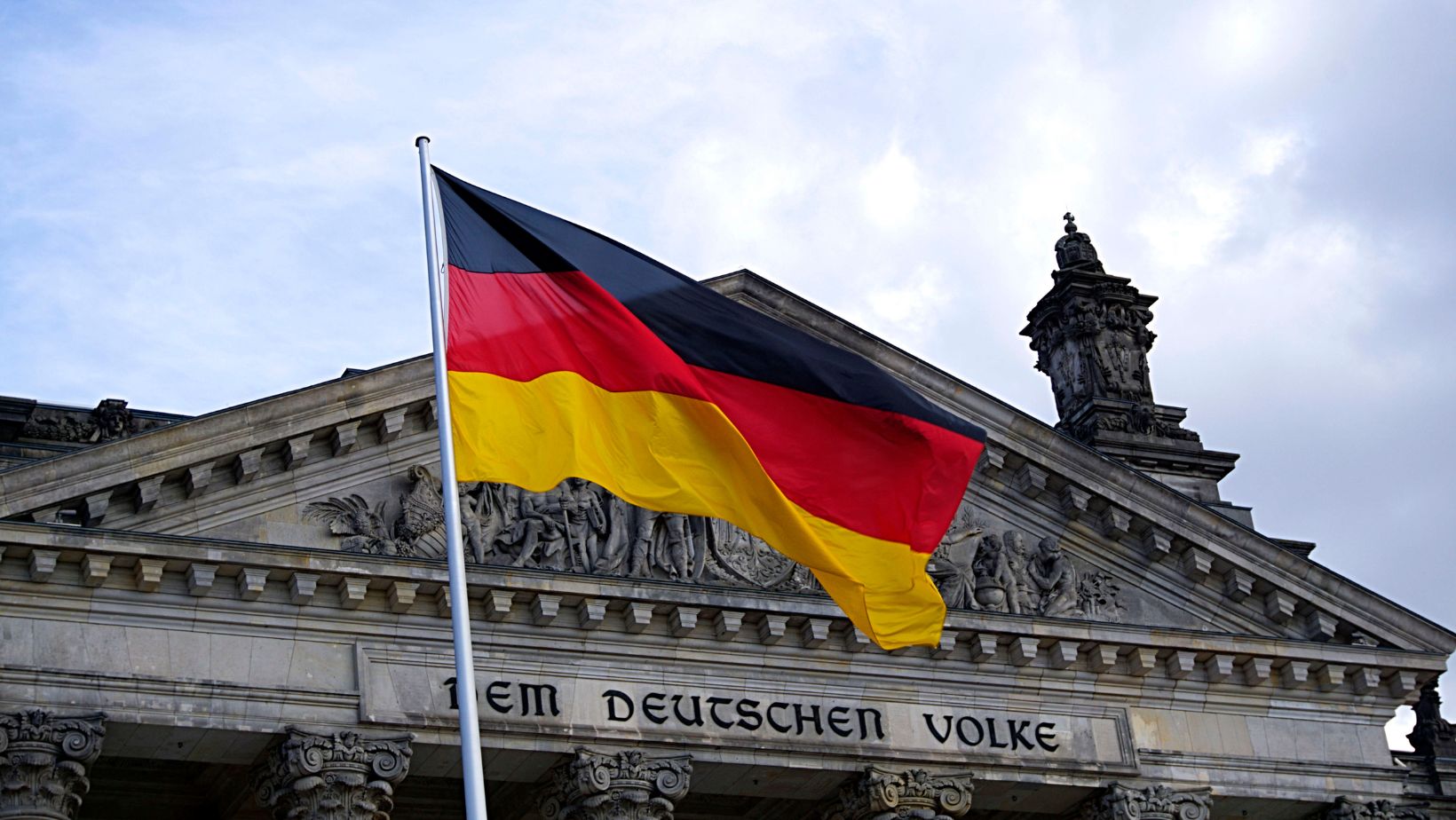Key Takeaways
-
- Shifting Political Landscape: The upcoming Germany elections will reflect significant changes in party dynamics and voter engagement, highlighting key social issues like climate change, economic stability, and immigration policies.
-
- Major Political Parties: Key players include CDU, SPD, Greens, FDP, AfD, and The Left, each presenting distinct platforms focused on economic policies, social justice, environmental sustainability, and immigration management.
-
- Voter Engagement: Rising civic engagement and increased use of social media in campaigns indicate a more informed electorate, particularly among younger voters who lean towards progressive agendas.
-
- Polling Trends: Recent polls show fluctuating support for major parties, with notable backing for the SPD and Greens, suggesting potential shifts in governance and resulting coalitions post-election.
-
- Current Events Impact: Influences like inflation and climate concerns are reshaping party platforms, requiring candidates to be responsive to pressing national and global issues as the election date approaches.
-
- Election Timeline: With key dates set for 2025, parties will ramp up campaign efforts across various platforms, aiming to mobilize voter participation and address contemporary concerns.
Germany’s
political news landscape is buzzing with anticipation as the nation gears up for its next election. With shifting party dynamics and pressing social issues at the forefront, citizens are eager to see how their votes will shape the future. The stakes are high, as Germany navigates challenges like climate change, economic stability, and immigration policies.
As candidates ramp up their campaigns, the latest election news reveals strategic alliances and emerging trends that could redefine the political scene. Voters are increasingly engaged, informed by a mix of traditional media and social platforms. This election promises to be a pivotal moment for Germany, as it seeks to balance its historical legacy with modern demands.
Germany Election News
Germany’s political landscape is undergoing significant changes as the election approaches. Political parties are realigning strategies to capture voter interest amidst pressing issues. Climate change remains a focal topic, with parties proposing varying solutions to address environmental concerns.
Economic stability commands attention, as inflation rates fluctuate, leading to increased discussions on fiscal policies. Immigration policies are also a central theme, with candidates presenting distinct views on managing immigration while balancing integration.
As voter engagement rises, candidate campaigns increasingly rely on social media platforms alongside traditional campaign methods. This election period witnesses new coalitions forming among parties, reshaping the typical political alignments seen in past elections.
Polls show shifting voter preferences, highlighting the potential for unexpected outcomes. Young voters are becoming increasingly influential, pushing for progressive agendas that reflect modern societal values. Analysts closely monitor these developments, considering how they will impact Germany’s future governance.
Key Political Parties In Germany
Germany’s political landscape features several influential parties, each contributing distinct viewpoints and priorities as the election approaches.
Major Players
-
- Christian Democratic Union (CDU)
CDU emphasizes center-right policies, advocating for economic stability, strong international partnerships, and a balanced approach to immigration.
-
- Social Democratic Party (SPD)
SPD supports social justice, a robust welfare state, and progressive taxation, focusing on reducing economic inequality and enhancing worker rights.
-
- Alliance 90/The Greens
The Greens prioritize environmental sustainability, climate action, and social justice. They aim to implement ambitious policies addressing climate change while supporting ecological reforms.
-
- FDP (Free Democratic Party)
FDP champions civil liberties, individual freedom, and economic liberalization. Their platform includes reducing bureaucracy and fostering innovation for economic growth.
-
- Alternative for Germany (AfD)
AfD presents a nationalist agenda, opposing immigration and emphasizing national sovereignty. The party invites controversy with its stance on social cohesion and cultural identity.
-
- The Left (Die Linke)
The Left advocates for leftist policies, emphasizing wealth redistribution, social equality, and comprehensive welfare programs to support marginalized communities.
Party Platforms
-
- CDU
CDU’s platform highlights a commitment to fiscal responsibility, economic growth, and stability. They address climate change through technology and innovation rather than regulation.
-
- SPD
SPD focuses on workers’ rights, healthcare access, and education reform. Their initiatives include raising the minimum wage and investing in public services.
-
- Greens
Greens’ platform includes aggressive goals for carbon emissions reduction and promoting renewable energy. They propose comprehensive strategies for sustainable transportation and urban development.
-
- FDP
FDP advocates for digitalization in government and education, calling for extensive reforms to support entrepreneurship and technological advancement.
-
- AfD
AfD’s platform criticizes the current immigration policies while promoting a strong national identity. They oppose the EU’s influence on German sovereignty.
-
- The Left
The Left emphasizes social justice, aiming to transform social and economic systems to ensure equitable distribution of resources and improved public welfare.
Civic engagement is on the rise, with each party adapting their platforms in response to voter concerns regarding pressing issues facing Germany today.
Recent Developments

Germany’s political landscape continues to evolve as the election date approaches. Key developments in election timelines and current events shape the discourse among voters and candidates alike.
Election Dates and Timeline
Germany’s federal elections are scheduled for October 2025, with specific dates for key events leading up to the elections. Party primaries will occur throughout spring and summer 2025, culminating in manifestos’ release by each party. Campaigning across regions starts in early September 2025, focusing heavily on engaging voters through town halls and digital platforms. The election’s final voter registration deadline is set for mid-September 2025, intensifying pre-election activities as parties aim to maximize their voter bases.
Impact of Current Events
Current events significantly influence the political discourse in Germany. Rising inflation rates affect economic policies, prompting parties to adjust their fiscal strategies. Recent climate-related disasters further amplify environmental concerns, leading parties, especially the Greens, to prioritize sustainable solutions. Meanwhile, immigration issues remain hotly debated. Rising numbers of asylum seekers stir tensions between parties advocating for open borders and those favoring stricter regulations.
Additionally, geopolitical developments, such as the conflict in Ukraine, stress the need for cohesive foreign policies. These events, alongside a notable shift in voter sentiment towards younger and more progressive candidates, signify a transformative election. Media coverage and social media platforms bring these issues to the forefront, driving increased voter participation and advocacy for change across the political spectrum.
Voter Sentiment And Trends
Voter sentiment in Germany is shifting as the upcoming federal elections approach. Various social issues are influencing public opinion and altering party dynamics significantly.
Polling Data
Recent polling data reflects fluctuating voter preferences and engagement levels. According to a Gallup poll conducted in September 2023, support for the Social Democratic Party (SPD) stands at 25%, followed closely by the Christian Democratic Union (CDU) at 24%. The Alliance 90/The Greens has garnered 17%, while the Free Democratic Party (FDP) holds 12%. The Alternative for Germany (AfD) has shown modest growth at 14%, indicating a rise in nationalist sentiments. Young voters, particularly those aged 18-29, demonstrate a marked preference for progressive parties, with 40% leaning towards the Greens and the SPD. This demographic shift underscores a growing urgency for climate action and social equity among the electorate.
| Party |
Support (%) |
Voter Age 18-29 (%) |
| Social Democratic Party (SPD) |
25 |
40 |
| Christian Democratic Union (CDU) |
24 |
20 |
| Alliance 90/The Greens |
17 |
40 |
| Free Democratic Party (FDP) |
12 |
15 |
| Alternative for Germany (AfD) |
14 |
10 |
Predictions and Analysis
Analysts anticipate a competitive election, with predictions suggesting potential shifts in power dynamics. The emergence of new coalitions is likely as parties adjust to voter demands. Key issues such as climate change, economic stability, and immigration will dominate campaign narratives. If current trends continue, the SPD and the Greens might form a coalition, capitalizing on their shared progressive agendas. Public interest in digital campaigning is expected to rise, leading to greater political engagement among younger voters. Additionally, external factors like international relations will play a role in shaping party platforms, requiring political adaptability in response to changing global conditions.
Shaping the Future with Election
Germany’s upcoming federal elections promise to be a pivotal moment in the country’s political landscape. With pressing issues like climate change economic stability and immigration taking center stage voters are poised to play a significant role in shaping the future. The increasing engagement among younger voters highlights a shift towards progressive agendas that prioritize sustainability and social equity.
As parties refine their platforms and form strategic alliances the political dynamics will continue to evolve. The interplay of traditional media and social platforms further amplifies the voices of the electorate. As the election date draws nearer the anticipation builds around the potential for transformative change in Germany’s governance.
 Germany’s political landscape continues to evolve as the election date approaches. Key developments in election timelines and current events shape the discourse among voters and candidates alike.
Germany’s political landscape continues to evolve as the election date approaches. Key developments in election timelines and current events shape the discourse among voters and candidates alike.
